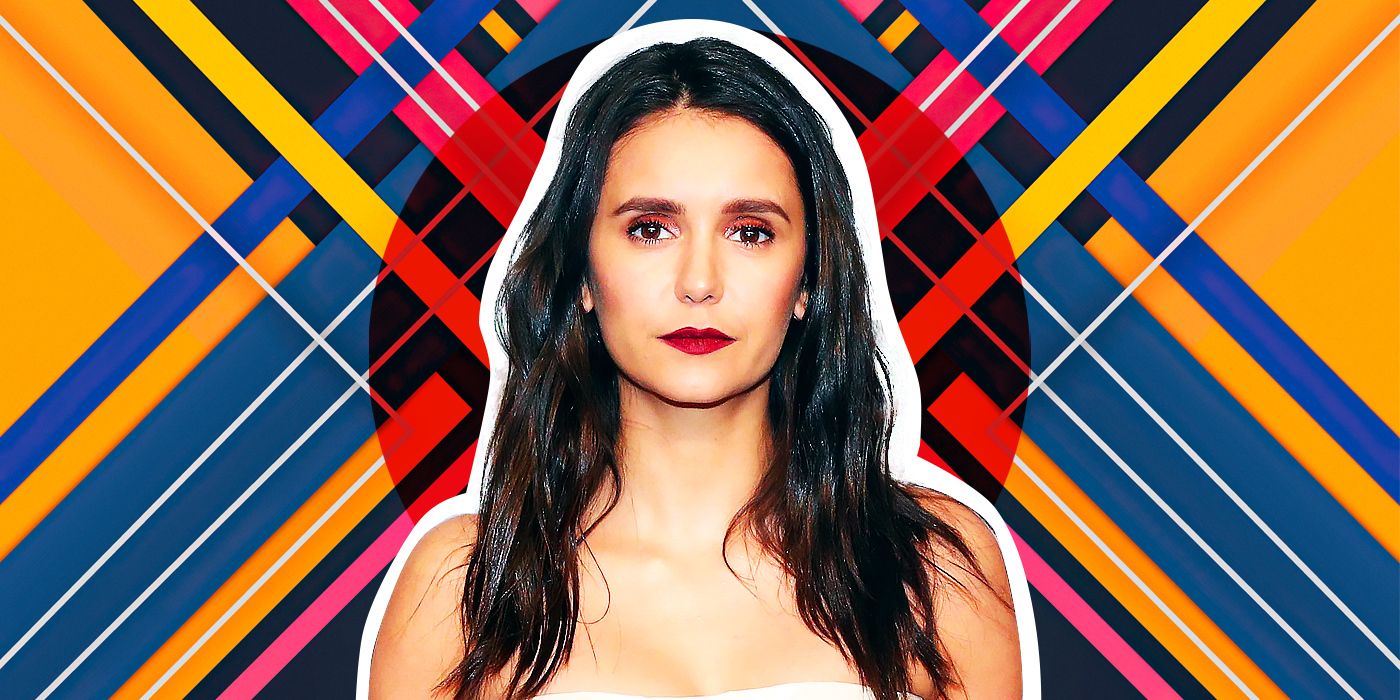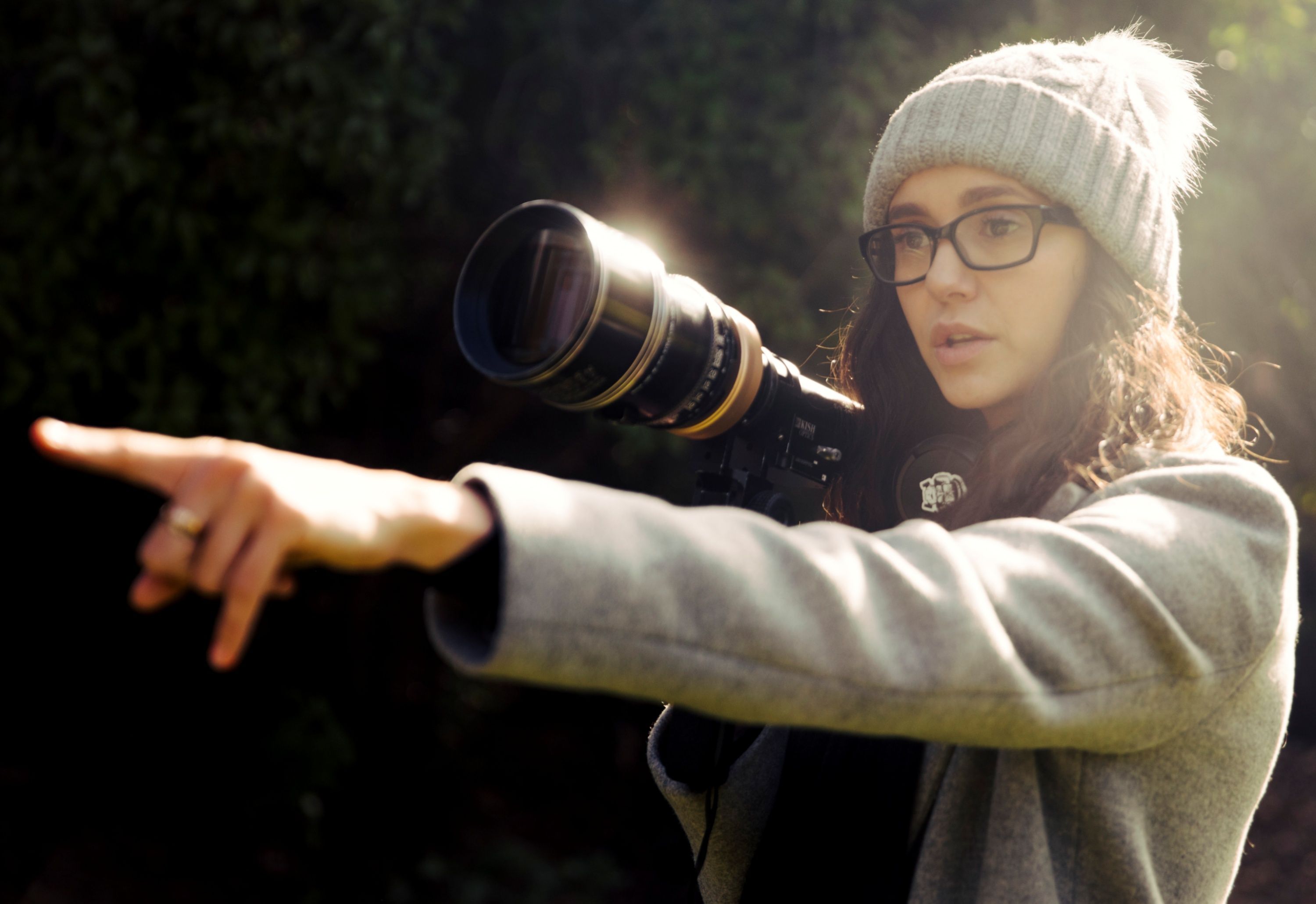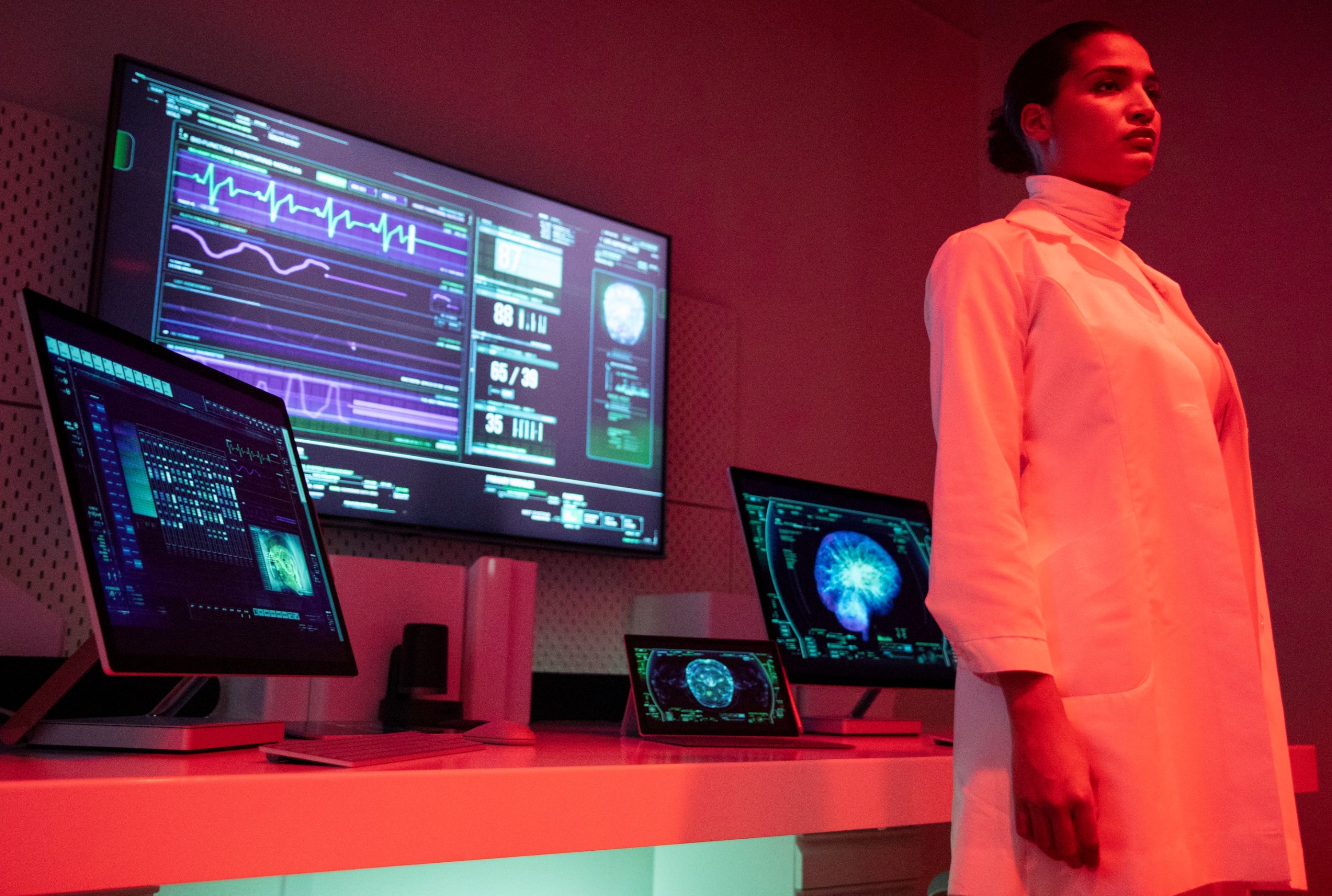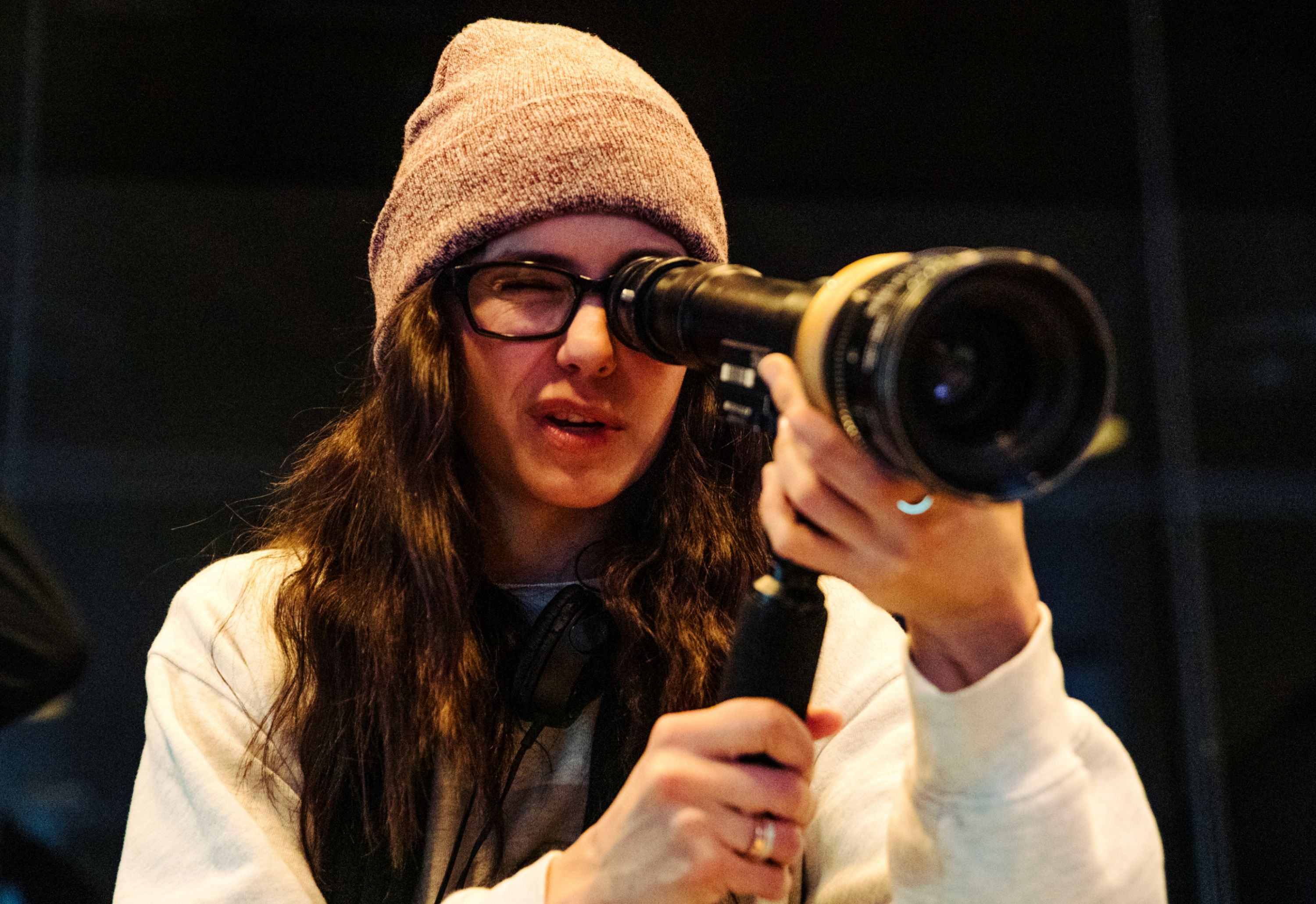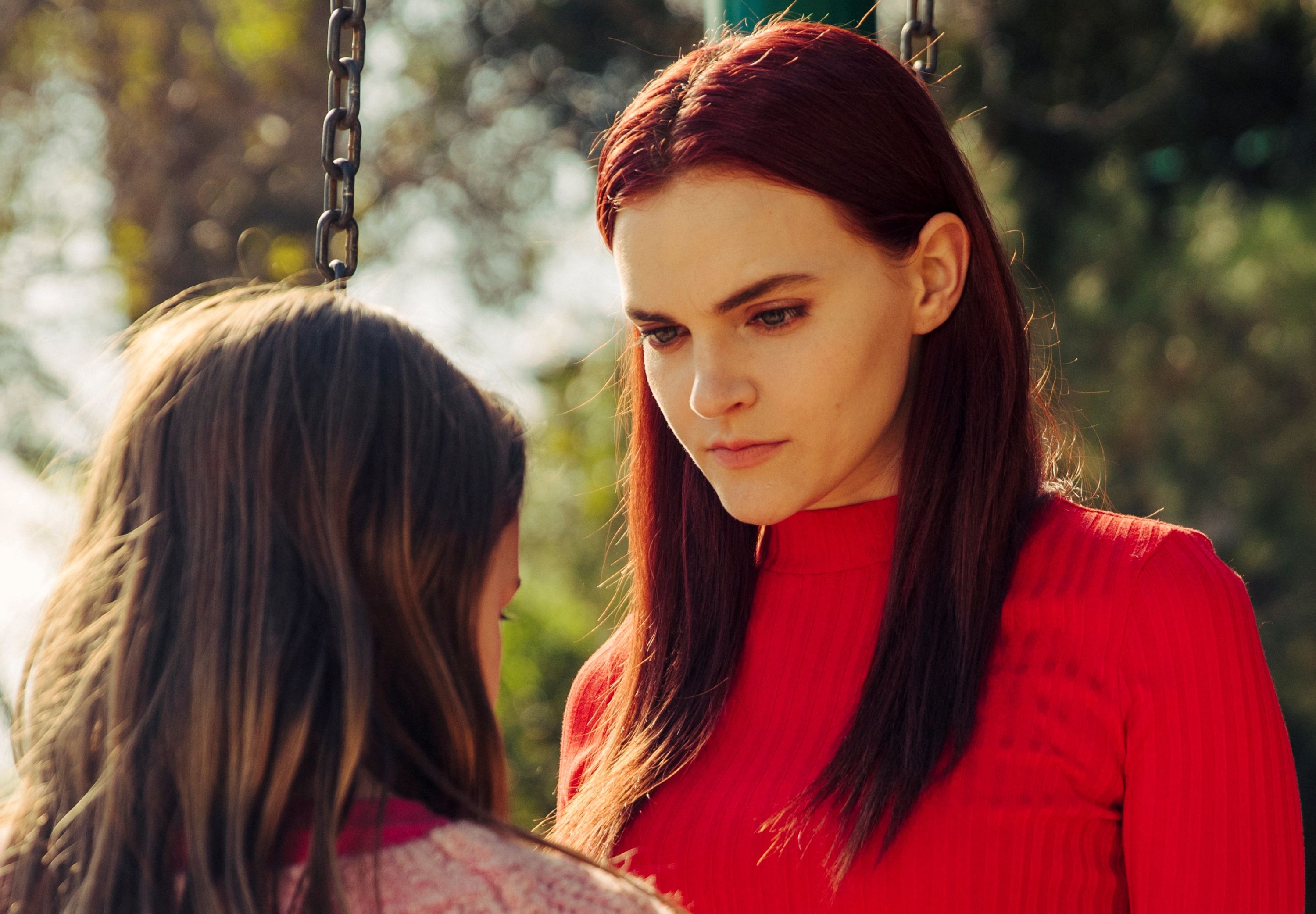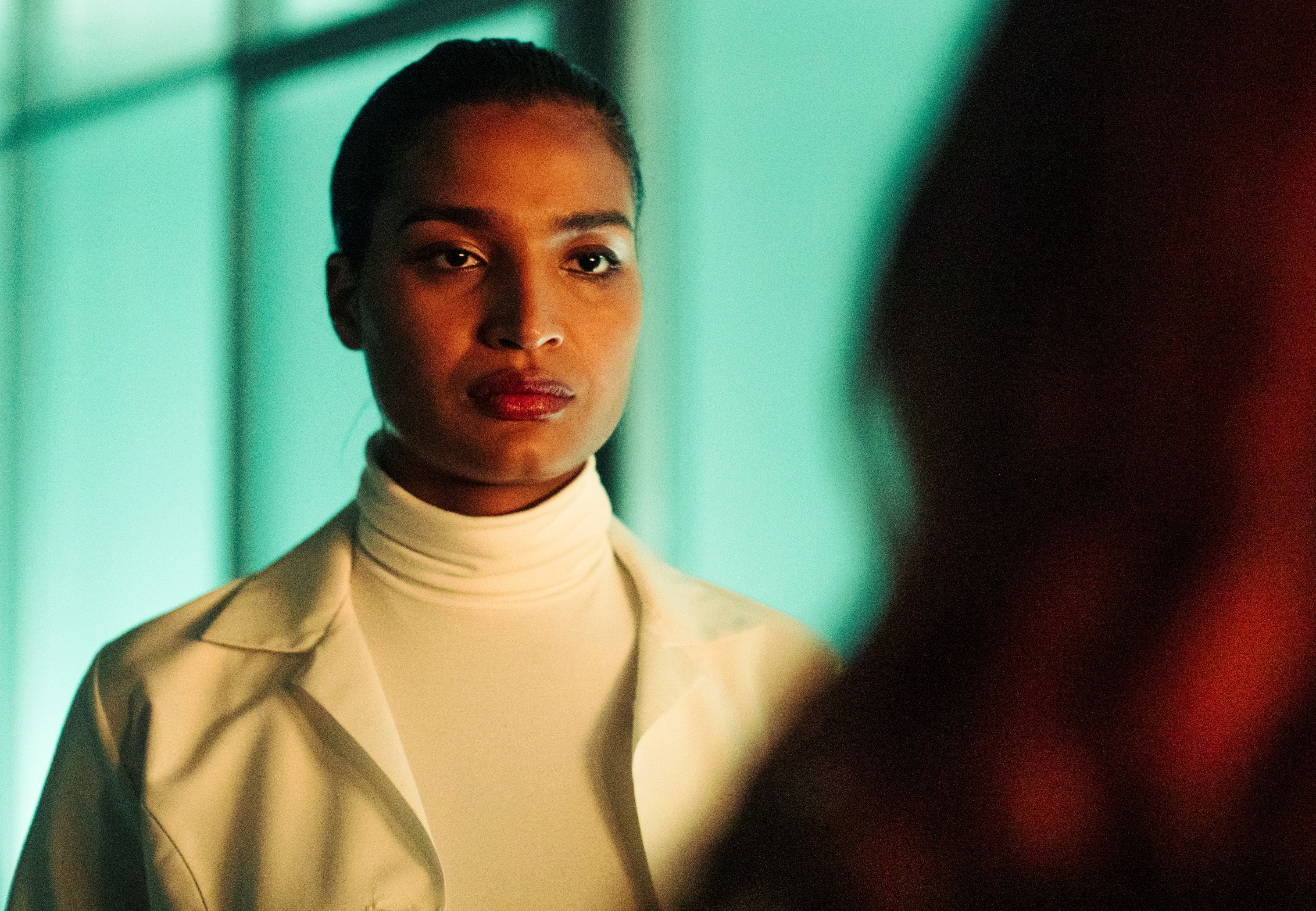With a successful and impressive acting career in film and television that includes memorable roles spanning various genres, Nina Dobrev has taken everything she’s learned from her years of on-set film school and branched out behind the scenes, also adding the titles of producer, writer and now first-time director to her resume. In the high-concept short film The One (which screened at this year's SCAD Savannah Film Festival), what appears to be a typical mother-son day in the park is actually a woman searching for what she considers the perfect child in the age of technology.
During this 1-on-1 phone interview with Collider, Dobrev talked about pouring her heart and soul into this passion project, why she also wanted to write the short (which she did with William Day Frank), how this story was inspired by her own life, where to draw the line with technology, assembling this cast, what she learned about directing from this experience, and her hope of turning this story into a full-length feature.
Collider: I was so compelled by this short and now I want the full-length movie.
NINA DOBREV: Thank you. I really appreciate you saying that. We worked really, really hard on it. It’s this huge passion project that I’ve poured my heart and soul into, so it means a lot to hear you say that and I hope that it is received well, so that we do get a chance to make it into a full feature because we’re working on the feature length script as well. It was a little piece, both for the audience and for me, as a director, to dip my toe into the water, and now I’m really excited to tackle a full feature.
Were you always thinking about possibly expanding this into a full-length feature, or was that something that you realized as you were working on this short?
DOBREV: It was both. It was equal parts trying my hand at something and also having a proof of concept for a bigger idea that I had. I co-wrote this with Will Frank and we had a larger concept, but I am a first time director and really, really excited to start this new chapter, but I do realize that I’d have to have something under my belt to prove that I could do what I know I can do. Having been on set for almost two decades, in front of the camera as well as producing behind the camera, I treated it like a college experience and would take notes and ask a lot of questions. I’m very inquisitive. Even from when I was on Degrassi or The Vampire Diaries, I was really close with a lot of the camera operators and DPs, and I was always asking questions and trying to learn and was fascinated by how everything works. And so, when it came time to step into the role myself, I really did feel very prepared. I expected to be a lot more nervous, but wasn’t. I was very calm. I knew that I belonged and I knew what I wanted, and I had the confidence to do it, but also was really smart and knew where to trust other people who had more experience than I did. I surrounded myself with really incredible people, who are at the best of the best at what they do, to help support me on this first journey into directing.
Did you also know that you wanted to write this as well? Did you want to be a part in writing and creating the first thing that you directed?
DOBREV: Yeah, I definitely did. When I met with Will, we talked about it, at length. I’m a very hands-on person, no matter what I do, whether it’s acting, directing, doing a commercial, or doing a campaign. I like to be a part of every thread, if you will. It feels like, if I’m gonna be a part of it, then I have to put my whole heart into I, and that includes wardrobe, lighting, the feel, the tone, the themes. I really want to immerse myself in the world. In terms of dialogue and writing characters and visuals, it needed to come from me, especially for the first one. I’m not closed off to the idea in the future. I’ve been writing a lot of other things as well. None of them have gotten set yet, but I’ve sold a couple of projects, as a writer. Writing has always been an interest of mine as well. It really just helps you, when you’re the one who wrote it, bringing it to life feels much more colorful and multi-faceted. You really understand that story, you know what you wanna get across, and your vision just feels more full, in my opinion, but mind you, I’ve only ever had this one experience. I can only judge it from this one time.
Where did this idea start? Were there ideas or themes that you wanted to explore? Was there one thing that it started with? How did this concept come about?
DOBREV: We had a lot of different iterations and brainstormed a lot, but at the core of it, it’s about morality. The main theme is morality. A bit of it is inspired by myself and what I have gone through. I’ve recently frozen my eggs and gone through the process to freeze my eggs. I was really shocked to learn about the concept of designer babies. I’m obviously not doing that because I’m not trying to have a baby right now, but I was introduced to the idea that nowadays not only can you find out the sex of your baby, you can choose the sex, the eye color, the hair color, and the projected height. There are so many things that you can manipulate in the birthing process and the fertility process.
That’s what sparked the idea and it made me debate, at what point is it okay and at what point is it not okay? And what’s the morality behind trying to play God in modern day fertility, with the liberties that we take when we try to conceive? It used to be nature versus nurture, and now it’s more nature versus technology. So, that’s what was really interesting to me. If we can do that now, I was thinking about what happens 10, 15 or 20 years from now, if you could actually interview your future children, if that right? Should you? Will a simulation really give you the real experience that a child would and how much of your nature will affect who they become as a person, that a computer can’t duplicate or a VR experience can’t bring to life?
It’s so interesting because technology advances so fast that these concepts were just science fiction, not that many years ago, and the fact that it is very much reality now is just scary.
DOBREV: Yeah, for sure. It’s very scary. Even if you go back 10 years, before social media existed, the world was such a completely different place. It’s changed how we function in society, in so many ways. Obviously, Black Mirror was a huge inspiration. I’m a huge fan of that. I love Euphoria. The director of photography on the short is one of the directors of photography for Euphoria, Drew Daniels. He’s so talented. That’s where I grabbed the best people that I could have in the industry. I learned so much from Drew and he was so helpful. We really became a team and it was so exciting to get to work with him and live in his brain for the few weeks that it took us to make this. It was really, really exciting,
What was the whole casting process like for this? You have some great performances in this. What was that like to approach, with the acting background that you have?
DOBREV: There was a lot of trust. With Madeline Brewer, I’ve known her for a few years now and she’s a wonderful human being. I’d always connected really well with her, when we saw each other, and had been a huge fan of her work on The Handmaid’s Tale and Cam, and so many other things. I knew she had the range, I knew she could do it, and I knew she was amazing, so I just reached out to her and asked her if she would be a part of this. It took her trusting that I could do this, and luckily she said yes. She brought so much color and nuance and depth to this role that I envisioned. She really brought it to the next level. With Indya [Moore], I was a huge fan of Pose, and I’ve worked at Louis Vuitton in the past, and she’s one of the ambassadors for Louis Vuitton, so we’d met through that. So, I reached out and she said yes, and she came in from New York.
And then, to be honest with you, the kids were the bigger challenge, and yet not. There were so many wonderfully talented young actors. We went more through the traditional casting process with the kids and auditioned, but it was really more about finding the right kids for the role. Two of the kids, we cast from audition tapes. I met with them and they were so wonderful on set. It was a lot easier than I thought. Everyone had warned me that it’d be really hard to shoot with kids on that, but they were wonderful little actors and did a great job. And then, Ryan Kiera Armstrong, who plays Charlie, the final child at the end, or The One, there’s a cute little story there. She’s the daughter of my acting coach, when I was 14 years old in Canada. He coached me when I was a kid and we became really good friends and stayed in touch over the years. And then, maybe 10 years later, he had a daughter and she started acting, and she’s breaking out in such a big way. She was in The Tomorrow War and Black Widow. Her resume is so long and crazy and amazing for how old she is.
So, when we were casting, I thought of her immediately. I’ve seen her work and she’s like a little mini Dakota Fanning. I asked my acting coach if he thought she’d want to do it because I thought she’d be incredible in the role. Initially, there was a different role for another girl and Charlie was a boy, but once she said yes, we changed Charlie and turned her into a girl, which I think was ultimately a great decision. She’s so magnetic, so likable, and lovable. She’s such a young talent that I can’t wait for people to see, as she gets older and continues to work.
Even though you’ve spent a good portion of your life on set and you know this business, how scary is it to step onto set the first day, in a position that you haven’t done before? What was that first day as a director like?
DOBREV: It was exciting. If there were any nerves, it was more like butterflies and excitement because it was a long time coming. I’ve been wanting to direct for a long time. I remember asking the producers of The Vampire Diaries if I could direct, back in Season 1, and I was one of the only people that didn’t get to direct, which is a bummer. I knew that it was something I wanted to do, for a very long time. I’m excited that the first time got to be my own thing and that I got to have full creative control, which was really exciting. It was just so great to see everything come to life and to see the girls come to set. Indya and Maddie were the first ones that we shot with in the lab. That was the first day. Seeing the words come off the page was magical, and having the cameras pointing at them, and the lighting come together, and the set design. We transformed that whole space to make it look futuristic. It was just really incredible to see everything come together. It was more excitement, to be honest with you. I was excited to be there. I didn’t really feel like work. It just felt like play.
What does it mean to you now, to not only have this tangible thing that you can show people that you’ve directed, but to also know that audiences will be watching it at a film festival? What’s that feeling like, to put it out into the world and know that strangers are now going to see it?
DOBREV: I think a year ago, I would have been anxious, but now I’m just thrilled. We worked on it for so long and, especially with the pandemic, there were a lot of challenges, being a first director. Luckily, we shot this right before everything shut down, so there were no masks. That wasn’t a reality in our world, at that point. But then, the world shut down after, so the whole editing process was interesting. I was in South Africa shooting a film and we had to edit over Zoom, and the audio was off because of the lag on Zoom, and we had to color correct and do sound mixes. The whole process took a lot longer than it would have, if I had just been in the room doing it there. But the finished product is so worth it. It’s just exciting that people will get to see it finally. We’ve spent so much time making it that I’m really anxious to hear what the reception will be and how people will receive it and what they’ll think. You get some of that acting because you work so hard on every project that you do, but it’s different when you created it, when you put pen to paper, and you’re there on set, and there are long hours, and you’re in a dark room editing. It does feel different, when you’re part of the process from start to finish, then when you’re just a hired actor.
Does it feel different, when you’re actually the one that’s responsible for figuring out your actors’ performances? Does it make you think differently about all the times that you put your own acting performance in the hands of your director?
DOBREV: To be honest, now that I’ve been on the other side, I understand why certain decisions were made. When you’re directing something, you have to look at the bigger picture and what the goal is, what the story is that you’re trying to tell, and the emotion that you want to convey. When you change the lens that you’re looking from, it changes the type of performance or the take you might choose. I think I’m more forgiving now because I understand that a little bit better.
Do you feel like there was anything that you learned about directing that you weren’t aware of until you were actually doing it yourself, or do you feel like you had a really complete sense of what to expect and it was exactly what you thought it would be?
DOBREV: It’s both. I felt like I did have a really good understanding of what it was. The part that I didn’t fully appreciate or understand as much was the prep that goes into everything. When you’re a hired actor, you just show up and everything’s there and done and you’re ready to go. Whereas when you’re directing, it’s weeks and weeks of prep and shot lists and renting cameras and finding out where to get them from and coordinating pickups. I produced this as well, so I wasn’t just directing it. When it’s a short, it’s much more mom-and-pop guerrilla style, so you have to get chairs and tents for shade and snacks. If it’s hot, you’ve gotta get fans. If it’s cold, you have to get heaters. There are so many different things. It’s just such a big production. I was aware of that, but the minutia of all the little moving parts, I wasn’t as aware of until I stepped on set myself.
Do you have any thoughts about whether you would want to direct things that you’re in?
DOBREV: It was a big debate, at the beginning, with this one, whether I was gonna be in it or not. Ultimately, I decided that it was more important to me, for my first experience directing, to focus my energy on directing. I’m not closed off to the idea in the future, but I wanted to make sure that, at the end of the day, the project is my baby, in this specific case. I had full confidence in Maddie and felt like it was more appropriate for her to do this and for me to focus my energy on being in the director’s chair, but we’ll see. On different projects, maybe I’ll try my hand at both.
At this point, are you looking at possible projects and trying to figure out what you want to act in, what you want to produce, and what you could maybe direct?
DOBREV: Absolutely, yeah. Big time, for sure. I’ve been producing behind the scenes for a little while now, so that has always been part of my brain and process. If I can add value and be integral in a project or an experience, I definitely love producing. But now that I’ve directed, I look forward to new opportunities to get to do it again. We’ll see what comes next. I definitely look forward to doing it again, for sure.
You mentioned that you’re working on expanding this into a full-length feature. Are you also working on trying to develop other projects, as a director, or are you just trying to figure out what that could mean for you?
DOBREV: I’m definitely developing other projects, as a director. This one, we’re developing into a feature film for me to direct, and there are a few others that I can’t quite talk about yet.

